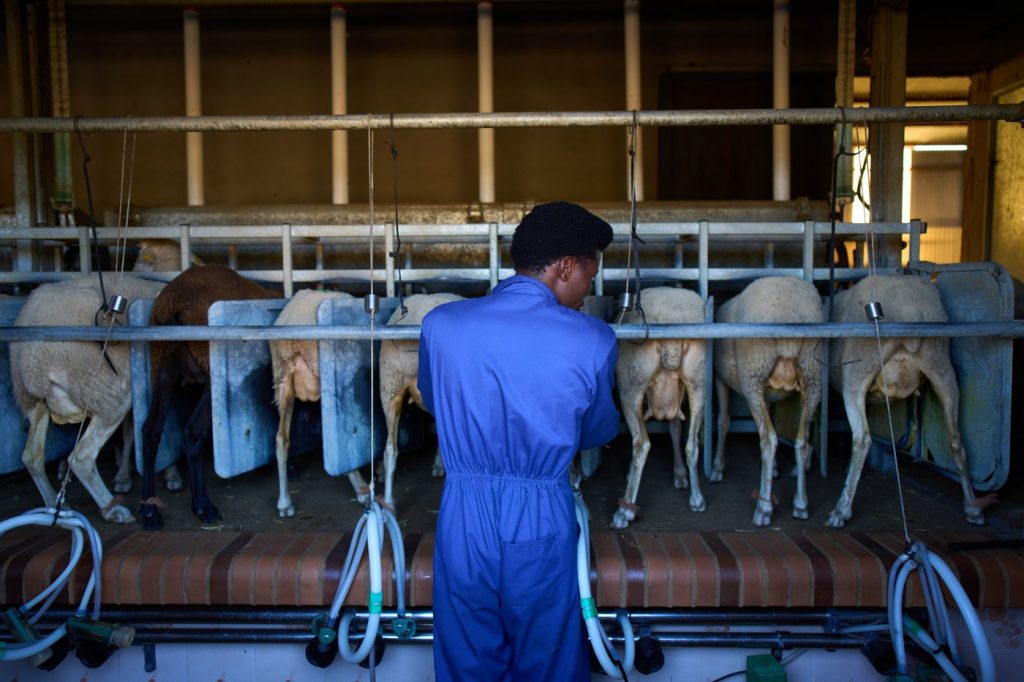In Los Cortijos, Spain, an innovative government program aims to address the pressing issues of rural depopulation and job shortages by training African migrants as shepherds. One of the participants is Osam Abdulmumen, a 25-year-old migrant from Sudan, who is gaining practical experience herding sheep and goats in the Castile-La Mancha region, renowned for its high-quality sheep's milk cheese.
The initiative reflects a unique approach to tackle the demographic challenges faced in rural Spain, where many young people have migrated to urban areas in search of better job opportunities. By integrating migrants into the agricultural workforce, this program seeks to rejuvenate these rural landscapes while providing essential jobs for individuals who have faced significant challenges in their home countries.
Through hands-on training, the migrants are not only learning about livestock care but are also being integrated into the local communities. Activities include farm visits and practical classes on sheep care. For instance, on October 10, 2025, a group of African students visited a sheep farm in Malagón, participating in a practical class focused on animal husbandry. Such endeavors are vital for ensuring that the trainees gain the necessary skills to thrive in this field and help sustain the local agricultural economy.
Osam Abdulmumen’s daily routine involves milking goats and watching over the flocks. On October 7, 2025, he demonstrated his growing skills by milking goats at a farm in Los Cortijos, showcasing the transition from being a migrant in search of a better life to becoming a contributing member of the community. During his time on the farm, he also shared a mobile picture depicting his challenging journey to Spain, providing a glimpse into the lives of migrants who often endure arduous paths to find safety and opportunity.
The program not only alleviates labor shortages in the agricultural sector but also fosters cultural exchange and understanding between locals and newcomers. For example, local shepherd Álvaro Esteban works alongside Osam and other shepherds, emphasizing the importance of mentorship in this transformative experience. On the same day, a photo captured the camaraderie as they paused after milking a flock of sheep, reflecting the bonds being formed through shared labor.
The agricultural landscape in Los Cortijos is enriched not only by the presence of these migrants but also by picturesque scenes of shepherd dogs watching over the flocks and sheep roaming freely inside the stables. This picturesque setting serves as a backdrop for revitalizing local farming practices, which have been at risk due to declining interest in rural occupations.
Moreover, the initiative extends to cheese production, as seen in the Manojar cheese factory where shepherd Álvaro Esteban was observed curing cheese on October 10, 2025. This highlights an important aspect of the agricultural cycle, showcasing how the sheep not only contribute to the economy through meat but through dairy products as well. Such activities are essential for the sustainability of the region's agricultural heritage.
The integration of migrants like Osam Abdulmumen into rural economies represents a forward-thinking solution to complex socio-economic issues in Spain. By investing in their training and providing them with meaningful work, the program supports both the migrants seeking stability and the rural communities in need of revitalization.











